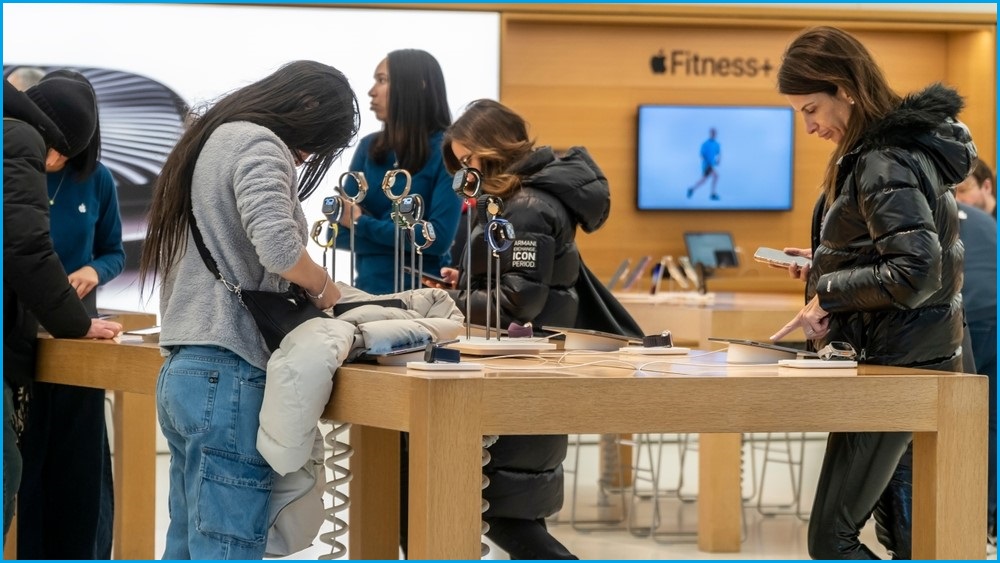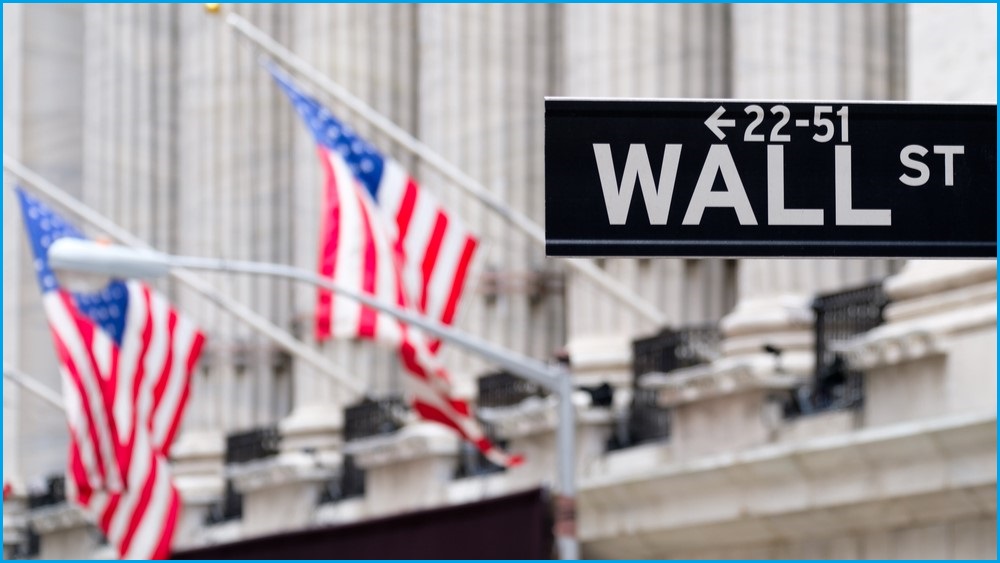Technology stocks have surged in a Wall Street rebound after US President Donald Trump announced a 90-day pause on most of his controversial tariffs which had tanked global markets, but US consumers face potential price rises as tariffs on Chinese goods continue to increase.
The tech-heavy Nasdaq composite index rose 12.16 per cent in the US on Wednesday — its largest daily gain since the dot-com bubble in January 2021 — and almost entirely made up for losses it experienced after Trump announced global tariffs on 2 April.
Among the largest rises on Wednesday were chipmakers Arm and AMD which were both up around 24 per cent, while social media giant Snap was up 22 per cent.
Electric vehicle maker Tesla — majority-owned by Trump ally Elon Musk — was also up 22.6 per cent on Wednesday but was still down more than 28 per cent so far in 2025.
The most valuable tech companies also rose, with Apple up 15.33 per cent, Microsoft up 10.13 per cent, and Nvidia up 18.72 per cent on Wednesday, after all experiencing falls earlier in the week.
US-China trade war escalates
While most countries, including Australia, will still face a 10 per cent tariff on exports to the US during Trump's 90-day pause, the White House has hiked the tax rate on Chinese exports to the US to 125 per cent.
The increase from 104 per cent was seen as retaliation for China's announcement of an 84 per cent levy on US goods starting 10 April, following ongoing tit-for-tat hikes between the world’s two largest economies.
Trump's broader 90-day tariff pause would also not apply to the US’ closest trading partners Canada and Mexico, which would continue to be taxed as much as 25 per cent, the president said.
The Australian share market rose more than 6 per cent in early trading on Thursday, but Prime Minister Anthony Albanese said stock market volatility showed Trump’s tariffs had harmed the US.
“We’ll continue to advocate that Australia’s tariff rate should be zero,” he said during a press conference on Thursday morning.
“We did not impose tariffs on US good into Australia, we have a Free Trade Agreement with the United States."
Prime Minister Anthony Albanese speaks during a press conference in Queensland on Thursday. Image: ABC News / YouTube
US consumers rush to buy Chinese-made tech
American consumers have reportedly rushed to purchase some Chinese-made devices such as laptops and smartphones amid escalating tariffs between the two nations, which could cause price increases in the US.
Bloomberg reported Apple stores in the US experienced an influx of customers this week, with some consumers allegedly worried about possible price hikes.
“Almost every customer asked me if prices were going to go up soon,” one Apple worker reportedly told the publication.
Reports of US consumers purchasing imported technology, including cars, have pointed to the country’s reliance on imported products.
Apple reportedly transported five planes full of products from India to the US in the final week of March, according to The Times of India, as Trump’s tariff rhetoric escalated and almost all countries faced a “reciprocal” 10 per cent tariff.

Some US Apple stores have reportedly seen a spike in customers this week. Photo: Shutterstock
The White House has suggested Apple could assemble its iPhones and other products in the US instead of in China or other Asian nations, after the company said it would spend around $815 billion ($US500 billion) on US manufacturing and research over the next four years.
Apple executives, including CEO Tim Cook, have previously voiced some reluctance due to the cost of manufacturing products in the US, and Apple has diversified its production into countries such as India and Vietnam in recent years.
Trump suggested on Wednesday he would consider granting some US companies exemptions from his tariffs “as time goes by”.
He also said a potential deal to sell off the US assets of Chinese social media giant TikTok was still “on the table”, just days after it was reportedly put on hold due to China's concern about tariffs.
Trump on Friday extended the deadline for TikTok’s parent company ByteDance to divest the video app’s US assets to 19 June or face a ban in the US.











